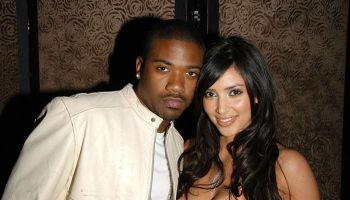In the past few months, I couldn’t help noticing the flurry of articles about the PCUSA’s decision to ordain people in same-sex relationships, the repeal of the military’s Don’t Ask, Don’t Tell policy, the passage of same-sex marriage laws in New York, and the decision of Chaz Bono, daughter of Sonny and Cher, to become a man.
Yet conversations about sex and sexual identity emerge as often around our dinner tables as on the front page of the paper. Recently, a pastor told me about a married member of his congregation who routinely cheats on his wife with other men. A friend described helping a female friend pick out an engagement ring so she could propose to her girlfriend. Another friend sat at our dinner table and talked about leaving the church after years of celibacy because he couldn’t deny his gay identity. Jenell Williams Paris, an anthropology and sociology professor at Messiah College, seeks to enter this cultural conversation in her new book, The End of Sexuality: Why Sex Is Too Important to Define Who We Are (InterVarsity Press). Moreover, Paris seeks to change the conversation within the church. Her analysis of contemporary culture offers a helpful aid to Christians trying to wade through the complex issues surrounding gender and sexuality in the modern age.
Paris does not want to overturn centuries of traditional Christian doctrine about sexuality, singleness, and marriage. Rather, she wants Christians to understand the manner in which we have capitulated to our culture, and then she wants to help churches create communities that offer a better way for all people, regardless of sexual experience, desire, or practice. To begin that new way, Paris insists we reclaim our core identity as God’s beloved rather than identify ourselves according to sexual preferences, either heterosexual or homosexual, which are relatively modern labels. Paris writes, “All sexual identity categories have a common trouble; they tell us that what a person wants, sexually, is an important measure of who a person is.” The same could be said for other identity categories, be they ethnic, racial, economic, or related to ability and disability. As Christians, first and foremost we know ourselves as members of the body of Christ, as new creations by the power and work of the Spirit of God. Only as we recognize this truth about ourselves and about our sisters and brothers can conversations about sexual practice proceed in a constructive way.
Click Here to Continue Reading…
Most Views
- Princeton Review Student Survey Calls Ohio University Top Party School In U.S
- Fred Hammond Shares Powerful Testimony On Donnie McClurkin Show
- Keyshia Cole Brings Out Son On Stage [VIDEO]
- Gospel Singer Yolanda Adams Launches New Clothing Line
- Audio: The Bishop Secular Re-Wind {August 1st 2011}
- Gospel Song Of The Day: Still Here (Live)
- College Students Using “Sugar Daddies” To Pay Off Debt
- Daily Devotional: Get Alone With God! By Pastor Paula White
- Photos: History Of The Church Hat
- Breaking News: Coast Guard Searching For Missing Man On Lake Erie












